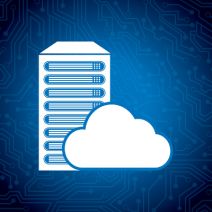SMART Blog
Businesses need hardware and software to keep an infrastructure running, but not all organizations specialize in the management and acquisition of these systems. Furthermore, some businesses don’t even know what their specific needs are, which is shocking to think about. We’re here to help you make the best decisions possible with your hardware and software acquisitions.
Any business venture nowadays is apt to utilize a lot of data, and therefore will require plenty of digital storage space to accommodate its needs. As a result, selecting a storage device is an important decision to make - especially when one is trying to decide between a Solid State Drive (or SSD) or a Hard Disk Drive (HDD) storage solution. A quick comparison between the two will help you choose one over the other.
Computer monitors have become streamlined in appearance and design over the years. One of the biggest improvements was the addition of the LCD screen, which in comparison to the old CRT monitors is more pleasing to the eye. However, its brightness means that there are side effects that can lead to eye strain and headaches. You can lower your screen brightness to preserve both your eyesight and your sanity, in addition to saving precious battery life.
Hackers have proven that they will do whatever it takes to get to your valuable assets, even if it means taking advantage of physical objects that work alongside a specific frequency. As it turns out, this is exactly how hacking a garage door works, and all it takes is a decade-old communications device to capture the frequency and unlock any garage door that utilizes it.
 With as many resources as you’ve invested in your company’s technology, you should do everything you can to protect it. An IT infrastructure that doesn’t have an Uninterruptible Power Supply (UPS) safeguarding its data, is putting the entire operation at risk. Here’s what you need to know about this important device.
With as many resources as you’ve invested in your company’s technology, you should do everything you can to protect it. An IT infrastructure that doesn’t have an Uninterruptible Power Supply (UPS) safeguarding its data, is putting the entire operation at risk. Here’s what you need to know about this important device.
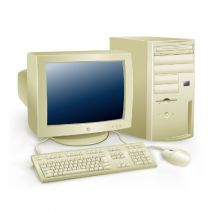 Technology changes at an astounding rate. Because of constant technological improvements, some users feel the need to replace their devices the second a bigger and better technology is launched. On the other hand, the increase in reliability of computers in recent years has has hindered the sales of new PCs.
Technology changes at an astounding rate. Because of constant technological improvements, some users feel the need to replace their devices the second a bigger and better technology is launched. On the other hand, the increase in reliability of computers in recent years has has hindered the sales of new PCs.
 When searching for tech support for your organization, you might often wonder if what you’re paying for your current service provider is really worth the maintenance that you receive. At times, it might feel like you’re being charged an arm and a leg for a simple network audit, and you can forget about purchasing new hardware components in the event of a technology failure or disaster. Rather than pay for services that are extorting money from you, your budget might find that the price of managed IT services is just right.
When searching for tech support for your organization, you might often wonder if what you’re paying for your current service provider is really worth the maintenance that you receive. At times, it might feel like you’re being charged an arm and a leg for a simple network audit, and you can forget about purchasing new hardware components in the event of a technology failure or disaster. Rather than pay for services that are extorting money from you, your budget might find that the price of managed IT services is just right.
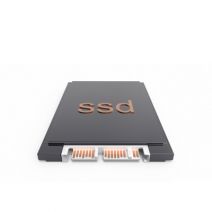 If you’re in the market for a new computer, then you’re going to have to make a decision: Go with a traditional hard drive (HDD), or a solid state drive (SSD). While a computer equipped with an HDD will cost you less money, an SSD promises to faster speeds and a longer lifespan. This begs the question, is SSD worth the extra money?
If you’re in the market for a new computer, then you’re going to have to make a decision: Go with a traditional hard drive (HDD), or a solid state drive (SSD). While a computer equipped with an HDD will cost you less money, an SSD promises to faster speeds and a longer lifespan. This begs the question, is SSD worth the extra money?
 Every business owner knows how imperative technology is to their success. Sometimes it’s the most common problem which can keep you from being as productive as possible. It’s not always evident when technology is about to fail, but there are some general signs you should look for when you’re skeptical that your hard drive is about to kick the bucket.
Every business owner knows how imperative technology is to their success. Sometimes it’s the most common problem which can keep you from being as productive as possible. It’s not always evident when technology is about to fail, but there are some general signs you should look for when you’re skeptical that your hard drive is about to kick the bucket.
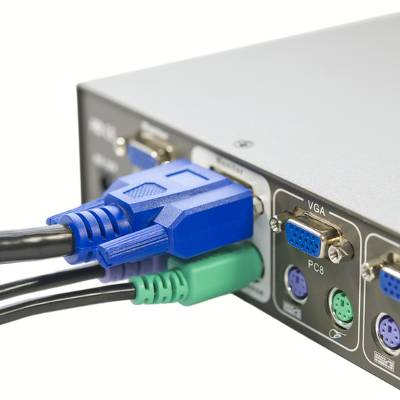 Your company's IT infrastructure is much like a puzzle. There are many different pieces that make it up, and each piece is needed for the entire network to work properly. One piece of equipment that often gets overlooked is the KVM switch. Here are three tips on finding the right KVM for your business.
Your company's IT infrastructure is much like a puzzle. There are many different pieces that make it up, and each piece is needed for the entire network to work properly. One piece of equipment that often gets overlooked is the KVM switch. Here are three tips on finding the right KVM for your business.
 Mobile devices are designed for different purposes than the big, bulky desktops are. The Chrome operating system of the Google Chromebook is a perfect example of this - it looks like nothing but a browser with a keyboard. Sure, it can't do everything a real computer can do, but it sure can do a lot more than some people give it credit for.
Mobile devices are designed for different purposes than the big, bulky desktops are. The Chrome operating system of the Google Chromebook is a perfect example of this - it looks like nothing but a browser with a keyboard. Sure, it can't do everything a real computer can do, but it sure can do a lot more than some people give it credit for.
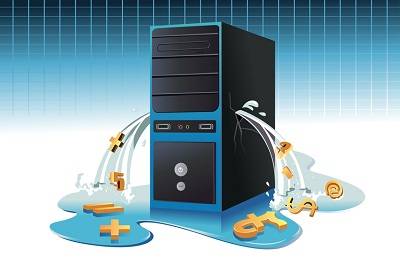 The majority of businesses that experience data loss will not recover. You may think that, if you are careful, then you will not need a backup solution, but statistics say otherwise. A 2009 study by Blackblaze.com revealed that 46% of users experience data loss every year! This figure makes sense when you consider the five most common factors of data loss.
The majority of businesses that experience data loss will not recover. You may think that, if you are careful, then you will not need a backup solution, but statistics say otherwise. A 2009 study by Blackblaze.com revealed that 46% of users experience data loss every year! This figure makes sense when you consider the five most common factors of data loss.









